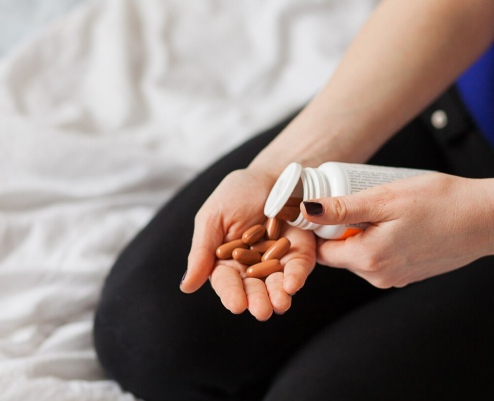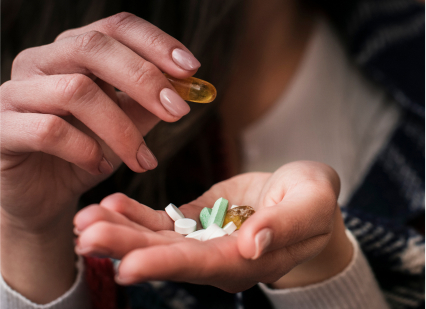Klonopin is a powerful benzodiazepine used for the treatment of panic disorders and seizures. This classification includes the likes of Xanax and Valium, notorious for their potential to become habit-forming. While Klonopin may not be in the spotlight as often, these powerful benzos can result in addiction, overdose, and withdrawal effects. One major contributor to the development of such adverse effects is the buildup of Klonopin. This begs the question: How long does Klonopin stay in your system? A key component to understanding how long Klonopin stays in the body is understanding the concept of Klonopin’s half-life.
How Long Klonopin Stays In Your System: Klonopin Half-Life
Half-life is a pharmacology term used to describe the amount of time it takes for an amount of a substance in the body to be reduced by 50%. It plays an important role in toxicology and understanding how the effects of a drug might be amplified with continued use. When levels of a drug are too high the individual can develop a tolerance, which significantly increases the likelihood of the development of addiction or overdose.
Klonopin has a long half-life and remains in the system for a considerable amount of time: 30-40 hours. However, it takes about five half-lives before a substance is fully eliminated from the body, which means a single dose of Klonopin can stay in the system for up to a week. Why does this matter? Even if you’re not feeling its effects anymore, Klonopin is still in the body (Klonopin hits its peak between 1 and 4 hours) – and will be for quite some time. Taking this medication slightly more frequently than recommended, or taking larger doses than recommended, can quickly lead to toxic – and potentially dangerous – levels of build-up.
Factors That Influence Half-Life
The exact amount of time it takes for Klonopin to leave the body can vary depending on a number of factors.
- Age
- Dosage
- Duration of use
- Frequency of use
- Liver function
- Presence of other drugs
Many of these are directly correlated to variables that affect metabolism, of which age is the most significant factor. The presence of other drugs can also play a significant role in metabolism.
Klonopin Overdose
Klonopin is a benzodiazepine, a class of drugs whose rate of overdose deaths has risen over 500% in the past few decades. The abuse potential of these types of drugs is well-noted, however, Klonopin overdoses are not limited to individuals who intentionally misuse the medication. In many cases, it occurs amongst patients who are taking Klonopin exactly as prescribed – but how is this possible?
Potential Causes of Klonopin Overdose
Klonopin is slower acting but longer-lasting than other popular benzos. Since it takes longer to feel the effects, it can result in users taking more than their recommended Klonopin dosage. Paired with Klonopin’s staying power within the body, you’ve got the perfect storm for accidental overdose.
Signs & Symptoms
The symptoms of a Klonopin overdose are typical to that of any other benzo overdose:
- Ataxia (loss of control of body movements)
- Clammy skin
- Coma
- Drowsiness
- Enlarged pupils
- Shallow breathing
- Slurred speech
- Weak but fast pulse
The severity of these symptoms can vary, depending on many of the same factors that affect their metabolism. They are much more likely to be life-threatening if Klonopin was taken with alcohol, another medication, or an illicit drug.
Treatment
Fortunately, there are medications that can be used to reverse the effects of a Klonopin overdose. Flumazenil is a benzodiazepine antagonist that can reverse the sedative effects, even that of a coma. Its effectiveness is primarily limited to use for benzo intoxication compared to other types of drug overdoses.
Is Klonopin Dangerous?
Klonopin overdose is rarely fatal. However, the majority of fatal overdoses involved other drugs being taken at the same time. If you have a Klonopin addiction or are taking Klonopin while addicted to or abusing other substances, the risk of fatality is significantly higher. Quitting Klonopin cold turkey can be harmful and result in withdrawal effects just as other drugs would, and is never recommended. Instead, users should seek a benzo detox program that can help wean them off a medication (or multiple medications, if needed) to prevent seizures or other complications.





